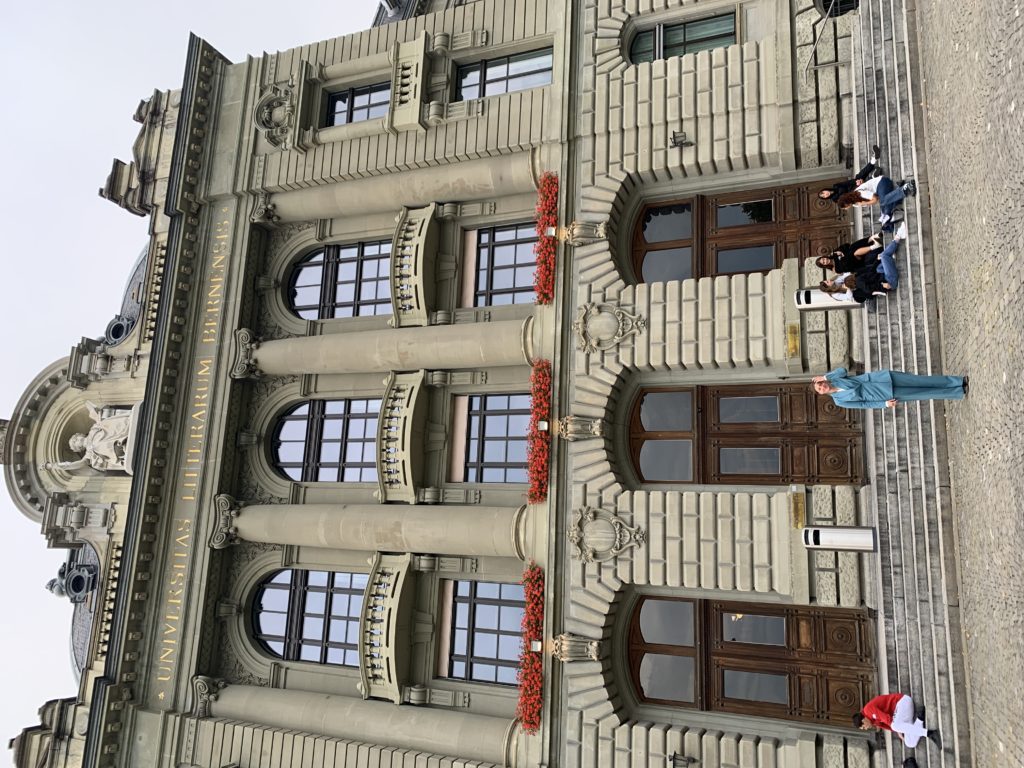Key speakers were Stephanie Menzel, Greenpeace Switzerland, Anna Akerman, founding member of “Ecoaction” NGO, and Kateryna Polyanska, environmental scientist of International charitable organization “Environment-People-Law”, moderator and one of the main organizers Alexander Vorbrugg, University of Bern.
During the round table, the participants talked about the consequences of the war for the environment and the work of the organizations on their identification and assessment. In particular, Anna Akerman spoke about the damage to green energy facilities, as well as the danger of growing agricultural products in places where destroyed military equipment is located. Stephanie Menzel noted that Greenpeace Switzerland was not actively involved in the assessment of the war’s environmental impacts, but they are willing to cooperate and provide analytical assistance.
Some environmental risks and consequences of the war have been widely covered in the news, such as the risks surrounding the Chernobyl and Zaporizhzhia nuclear power plants. But there are many more of them. The second issue related to a wider range of environmental problems in Ukraine caused by the military actions. Kateryna Polyanska talked about the long list of cases of air pollution with toxic substances during rocket and bomb explosions and fires at industrial facilities, danger to local population and the military from inhaling toxic gases that negatively affect the respiratory organs and a human body in general; soil pollution, water pollution, destruction of biodiversity, forest fires, mine pollution, use of prohibited weapons and other impacts. “All these problems should first of all be analyzed and highlighted in order to prevent possible threats to lives and health of Ukrainian citizens, and natural ecosystems so that we can live in a clean environment. We have to identify the dangers and talk about the risks. I consider this the primary task of ecologists,” said EPL environmental scientist.
Other issues were devoted to recovery and reconstruction of Ukraine after the war, to the possibility to create a “greener” Ukrainian economy, a more ambitious climate and environmental policy at the international level. Another issue raised was about the possibility of cooperation and support from individuals, organizations and groups in Switzerland and other western countries. Participants of the round table discussion raised questions regarding the reconstruction plans that were considered in Lugano and proposals from environmental organizations for their amendments, as well as focused on importance of developed draft laws on State Environmental Control (3091), Reduction of Industrial Emissions/Integrated Environmental Permit (6004- 2), Waste Management (2207-1d), On the Territories of the Emerald Network (4461), which require urgent approval.
For additional information, please contact:
Kateryna Polyanska, EPL environmental scientist


